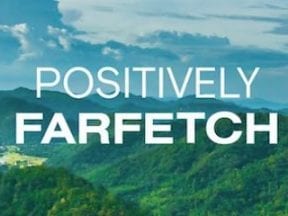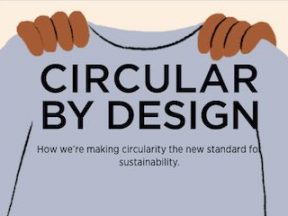Over the last five years most sizeable apparel companies have issued sustainability goals and how they intend to attain them. Some publish annual reports on their progress. But it isn’t easy to know whether a company is sustainable as there’s no clear definition or standardized data.
Apparel companies typically define sustainability narrowly, focusing on environmental impacts — i.e., avoiding the depletion of natural resources. By this measure, large brands are making progress. However, nonprofit organizations that monitor compliance often adopt a broader perspective, looking at economic, social, and environmental factors.
Good On You is a sustainability grading platform for fashion companies. It rates brands as: “Great,” “Good,” “It’s a Start,” “Not Good Enough,” and “We Avoid.”
Founded in Australia, Good On You defines itself as “…the world’s leading source for fashion brand ratings…and uses expert analysis to give each brand an easy-to-understand score.”
It conforms to the United Nations Sustainable Development Goal 12 to “ensure sustainable production and consumption patterns.” Along with environmental effects, Good On You considers how companies treat employees, contractors, and animals.
I share below what brands say about their sustainability efforts and their ratings from Good On You.
Evaluating Brands’ Sustainability
Kering, a Paris-based luxury fashion conglomerate, has made strides in sustainability. Its brands include Gucci, Saint Laurent, Balenciaga, and Alexander McQueen.
Kering’s Environmental Profit & Loss account guides its sustainable business model. It assigns a monetary value to its environmental footprint across its supply chain. The company aims to reduce negative environmental impacts in sourcing raw materials, manufacturing, and transportation by 40% between 2015 and 2025.
In 2013, Kering established a Materials Innovation Lab, a library of sustainable fabric and textile samples that its creative teams could access to choose materials. In 2021, Kering announced that none of its brands would use animal fur, starting with the fall 2022 collections.
The company also plans a 50% reduction in its carbon emissions by 2025. It maintains a carbon offset program through REDD+, an effort to fight deforestation. In 2019, Kering committed to carbon neutrality across its brands by offsetting annual greenhouse gas emissions. Since 2017, audits show a yearly reduction of several thousand tons of carbon dioxide emissions.
Good On You rates Alexander McQueen, Gucci, and Saint Laurent as “It’s a Start” and Balenciaga as “Good.”
—
LVMH, also based in Paris, is a luxury goods company with brands in six sectors: wines and spirits, fashion and leather, watches and jewelry, and perfume and cosmetics — including Louis Vuitton, Christian Dior, Givenchy, Bulgari, Tiffany, Moet Hennessy, and Tag Heuer.
The LIFE program — “LVMH Initiatives For the Environment” — is the conglomerate’s program for initiatives to improve environmental performance. Its jewelry brands have committed to responsible sourcing of raw materials.
Louis Vuitton, Dior, and Givenchy have stated they will reduce greenhouse gas emissions generated by their supply chain by a certain percentage but have not provided evidence that they are meeting their target.
Good On You rates Louis Vuitton, Dior, and Givenchy as “Not Good Enough” as they use few eco-friendly materials.
—
Stella McCartney. This clothing, shoe, and accessory brand based in London has been a pioneer in ethical and sustainable design and manufacturing. It promotes cruelty-free processes and manufacturing and aims to achieve full circularity with renewable or recyclable raw materials.
It is committed to preventing deforestation in its supply chain and continuously monitors its suppliers for adherence to its policies. It measures and reports both direct and indirect greenhouse gas emissions.
Good On You rates Stella McCartney as “Good.”
—
Levi’s. Headquartered in San Francisco, Levi’s has committed to recycling and reselling its jeans. It is on target to reduce greenhouse gas emissions from its operations and supply chain and appears to be on track to meet its goals. Making denim jeans is highly water-intensive. Levi’s has attempted to reduce water usage throughout its supply chain. It has also implemented an animal welfare policy.
Good on You rates Levi’s an “It’s a Start.”
—
Nike. Each year, Nike publishes an impact report detailing its sustainability efforts. Objectives are to eliminate waste in the manufacturing process, reduce water usage in the supply chain, and improve labor conditions for workers. It has a deadline to eliminate hazardous chemicals by 2025 and is on track to meet it.
Good On You rates Nike as “It’s a Start.”







